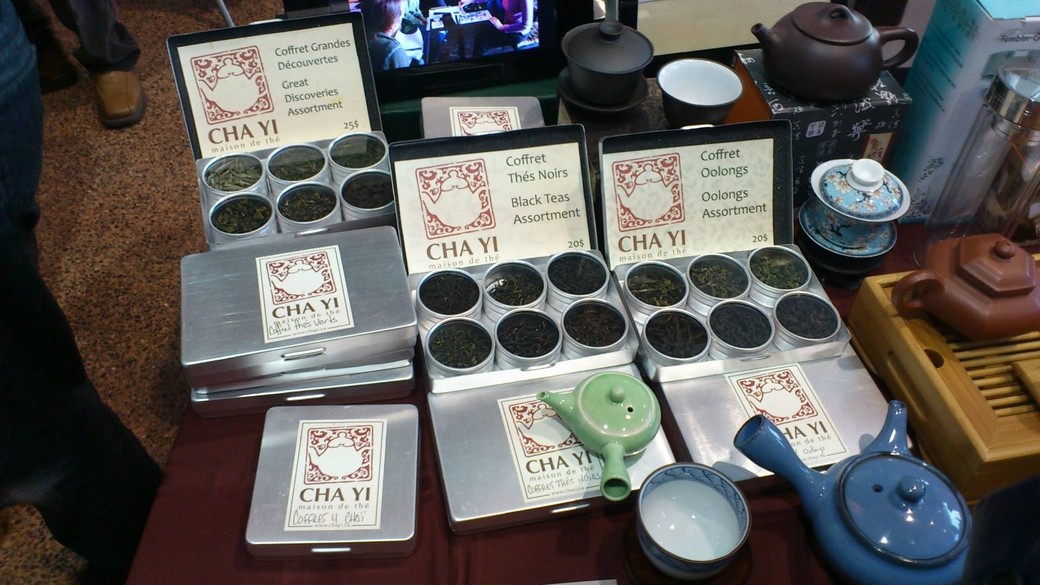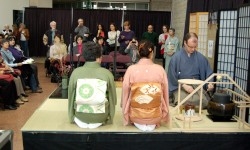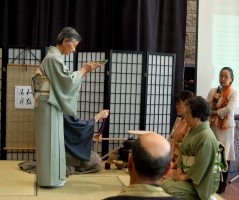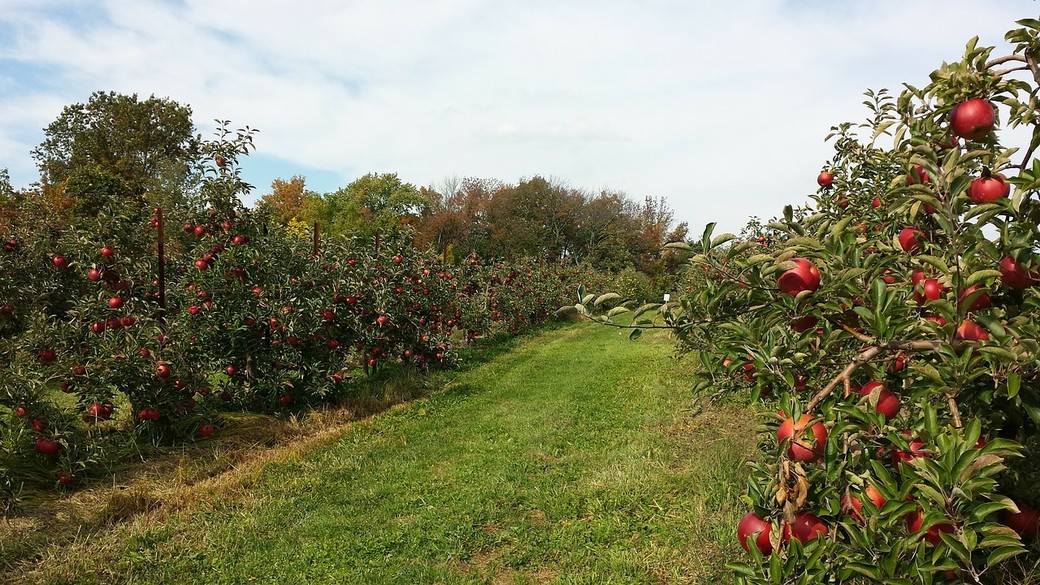
Tea, Tranquility and Tradition
As the cold weather rushes in, many of us will reach for a steaming cup of tea. The inaugural Ottawa Tea Festival taught guests about culture, tradition, and hospitality through the history of the hot drink.
Kimiko Uriu, the festival’s organizer, said over 600 people attended the event, which opened with a speech from Ms. Mariko Kaneko, Counsellor of the Embassy of Japan. “This is a unique event that has brought together many cultures and countries,” said Kaneko.

Next, a traditional Japanese tea ceremony took place center stage at City Hall. The ceremony was led by Luke Oldham and his mother-in-law Kyoko Kosaki.
Oldham was inspired by Kosaki to study the art of the ceremony at the Omoté-Senke Selha School in Japan. He handmade the scrolls, tea caddy, and carved tea scoop used in the ceremony over four years of study. “Japanese tea ceremony is more than an act of just drinking tea, but an act of serving…It’s a way of showing respect to the guests around you,” he said.

Each step of the ceremony is highly ritualized. Every item are made to exact specifications and high quality materials. For example the bowls and serving scoop accommodate two and a half sips of tea; the customary serving size.
The mantra of the ceremony is Wa, Kei, Sei, Jaku, meaning harmony, respect, purity and tranquility. The ceremony was slow and peaceful; everything that contradicts mealtime in Canadian society. “It suits my personality,” said Oldham. “Quiet, thoughtful, methodical.”
After the tea was sipped and the accompanying sweet treats were nibbled each utensil was cleansed and put away. “For every action that is done there is an equal action to undue that action,” said the ceremony’s moderator.
Kosaki, a petite, sweet-as-can-be, Japanese woman, said she holds tea ceremony lessons at her home on Tuesday afternoons to keep the culture alive.

Ottawa’s capital city mentality provided a perfect back drop to educate Ottawans about cultural traditions said event organzier, Uriu. “I traveled to a lot of tea growing regions, China, Korea, Japan. I found the more you learn about tea the more you learn about a culture.”
The festival featured many additional performances and lectures including a Korean tea ceremony, a talk on Fair Trade branding, and a matcha tea educational session led by Uriu.
The event raised over $1000 for Ashinaga, a charity benefitting orphans affected in Japan’s devastating earthquake and tsunami last March. The Japanese Counsellor thanked Canadians for their support during one of her country’s most tragic years. “The children who have lost their parents, it will take them time to heal.”
Uriu said the Ottawa Tea Festival will be an annual addition to the city’s events calendar.













